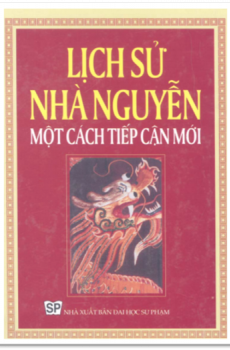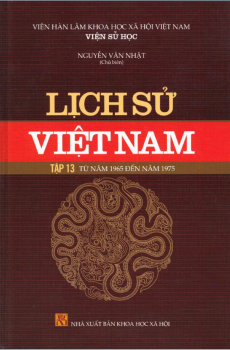A Modern History, From the Time of Luther to the Fall of Napoleon For the Use of Schools and Colleges
A Modern History, From the Time of Luther to the Fall of Napoleon For the Use of Schools and Colleges
Đăng nhập để đọc sách và tải về file pdf miễn phí
| Nhà xuất bản | unknown |
|---|---|
| Nhà xuất bản sách tiếp cận | Public domain |
| Năm xuất bản | 2008 |
| Coppy right | Chưa rõ |
*** START OF THIS PROJECT GUTENBERG EBOOK A MODERN HISTORY ***
Produced by David Edwards, Christine P. Travers and the
Online Distributed Proofreading Team at http://www.pgdp.net
(This book was produced from scanned images of public
domain material from the Google Print project.)
[Transcriber's note: Obvious printer's errors have been corrected, all other inconsistencies are as in the original. The author's spelling has been maintained.
Page 492: A probable typographical error "Camide, Desmoulins" has been replaced by "Camille Desmoulin".
The following sentences had illegible words; inserted words are shown here between "=".
Page 82: "and his mother, Catharine, became virtually the =ruler= of the nation."
Page 178: "The minority had now become a majority," — which is not unusual in revolutionary times, — and proceeded to the work, in good earnest, which =he= had long contemplated.
Page 487: All classes in France were anxious for it, and =war= was soon declared.]
A
MODERN HISTORY,
FROM THE
TIME OF LUTHER
TO THE
FALL OF NAPOLEON.
FOR THE USE OF SCHOOLS AND COLLEGES.
BY
JOHN LORD, A.M.,
LECTURER ON HISTORY.
PHILADELPHIA:
CHARLES DESILVER;
CLAXTON, REMSEN & HAFFELFINGER;
J. B. LIPPINCOTT & CO.
New York: D. APPLETON & CO. Boston: NICHOLS & HALL.
Cincinnati: ROBERT CLARKE & CO; WILSON, HINKLE & CO.
San Francisco: A. L. BANCROFT & CO.
Chicago: S. C. Griggs & Co. — Charleston, S. C.: J. M. Greer & Son; Edward Perry & Son. — Raleigh, N. C.: Williams & Lambeth. — Baltimore, Md.: Cushings & Bailey; W. J. C Dulaney & Co. — New Orleans, La.: Stevens & Seymour. — Savannah, Ga.: J. M. Cooper & Co. — Macon, Ga.: J. M. Boardman. — Augusta, Ga.: Thos. Richards & Son. — Richmond, Va.: Woodhouse & Parham.
1874.
Entered according to Act of Congress, in the year 1849, by
JOHN LORD,
In the Clerk's Office of the District Court of the District of Massachusetts.
PREFACE.
In preparing this History, I make no claim to original and profound investigations; but the arrangement, the style, and the sentiments, are my own. I have simply attempted to condense the great and varied subjects which are presented, so as to furnish a connected narrative of what is most vital in the history of the last three hundred years, avoiding both minute details and elaborate disquisitions. It has been my aim to write a book, which should be neither a chronological table nor a philosophical treatise, but a work adapted to the wants of young people in the various stages of education, and which, it is hoped, will also prove interesting to those of maturer age; who have not the leisure to read extensive works, and yet who wish to understand the connection of great events since the Protestant Reformation. Those characters, institutions, reforms, and agitations, which have had the greatest influence in advancing society, only have been described, and these not to the extent which will satisfy the learned or the curious. Dates and names, battles and sieges, have not been disregarded; but more attention has been given to those ideas and to those men by whose influence and agency great changes have taken place. In a work so limited, and yet so varied, marginal references to original authorities have not been deemed necessary; but a list of standard and accessible authors is furnished, at the close of each chapter, which the young student, seeking more minute information, can easily consult. A continuation of this History to the present time might seem desirable; but it would be difficult to condense the complicated events of the last thirty years into less than another volume. Instead of an unsatisfactory compend, especially of subjects concerning which there are great differences of opinion, and considerable warmth of feeling, useful tables of important events are furnished in the Appendix. I have only to add, that if I have succeeded in remedying, in some measure, the defects of those dry compendiums, which are used for want of living histories; if I have combined what is instructive with what is entertaining; and especially if I shall impress the common mind, even to a feeble degree, with those great moral truths which history ought to teach, I shall feel that my agreeable labor is not without its reward.
J. L.
Boston, October, 1849.
CONTENTS.
CHAPTER I.
STATE OF EUROPEAN SOCIETY IN THE FIFTEENTH AND SIXTEENTH CENTURIES.
(pp. 1-9.)
Revival of the Arts — Influence of Feudalism — Effects of Scholasticism — Ecclesiastical Corruptions — Papal Infallibility — The sale of Indulgences — The Corruptions of the Church — Necessity for Reform.
CHAPTER II.
MARTIN LUTHER AND HIS ASSOCIATES.
(pp. 10-29.)
The Early Life of Luther — Luther's Early Religious Struggles — The Ninety-Five Propositions — Erasmus — Melancthon — Leo X. — The Leipsic Disputation — Principles of the Leipsic Disputation — The Rights of Private Judgment — Luther's Elements of Greatness — Excommunication of Luther — The Diet of Worms — Imprisonment at Wartburg — Carlstadt — Thomas Münzer Ulric — Zwingle — Controversy between Luther and Zwingle — Diet of Augsburg — League of Smalcalde — Death and Character of Luther.
CHAPTER III.
THE EMPEROR CHARLES V.
(pp. 30-44.)
Charles V. — Spain and France in the Fifteenth Century — Wars between Charles and Francis. — Diet of Spires — Hostilities between Charles and Francis — African War — Council of Trent — Treachery of Maurice — Captivity of the Landgrave of Hesse — Heroism of Maurice — Misfortunes of Charles — Treaty of Passau — Character of Charles.
CHAPTER IV.
HENRY VIII.
(pp. 45-59.)
Rise of Absolute Monarchy — Henry VIII. — Rise of Cardinal Wolsey — Magnificence of Henry VIII. — Anne Boleyn — Queen Catharine — Disgrace and Death of Wolsey — More — Cranmer — Cromwell — Quarrel with the Pope — Suppression of Monasteries — Execution of Anne Boleyn — Anne of Cleves — Catharine Howard — Last Days of Henry — Death of Henry.
CHAPTER V.
EDWARD VI. AND MARY.
(pp. 60-68.)
War with Scotland — Rebellions and Discontents — Rivalry of the great Nobles — Religious Reforms — Execution of Northumberland — Marriage of the Queen — Religious Persecution — Character of Mary — Accession of Elizabeth.
CHAPTER VI.
ELIZABETH.
(pp. 69-81.)
Mary, Queen of Scots — John Knox — Marriage of Mary — Darnley — Bothwell — Civil War in Scotland — Captivity of Queen Mary — Execution of Mary — Military Preparations of Philip II. — Spanish Armada — Irish Rebellion — The Earl of Essex — Character of Elizabeth — Improvements made in the Reign of Elizabeth — Reflections.
CHAPTER VII.
FRANCIS II., CHARLES IX., HENRY III., AND HENRY IV.
(pp. 82-90.)
Catharine de Medicis — Civil War in France — Massacre of St. Bartholomew — Henry III. — Henry IV. — Edict of Nantes — Improvements during the Reign of Henry IV. — Peace Scheme of Henry IV. — Death of Henry IV. — France at the Death of Henry IV.
CHAPTER VIII.
PHILIP II. AND THE AUSTRIAN PRINCES OF SPAIN.
(pp. 91-96.)
Bigotry of Philip II. — Revolt of the Netherlands — Revolt of the Moriscoes — Causes of the Decline of the Spanish Monarchy — The Increase of Gold and Silver — Decline of the Spanish Monarchy.
CHAPTER IX.
THE JESUITS, AND THE PAPAL POWER IN THE SEVENTEENTH CENTURY.
(pp. 97-107.)
The Roman Power in the Seventeenth Century — Rise of the Jesuits — Rapid Spread of the Jesuits — Extraordinary Virtues of the older Jesuits — The Constitution of the Jesuits — Degeneracy of the Jesuits — Evils in the Jesuit System — The Popes in the Seventeenth Century — Nepotism of the Popes — Rome in the Seventeenth Century.
CHAPTER X.
THIRTY YEARS' WAR.
(pp. 108-119.)
Political Troubles after the Death of Luther — Diet of Augsburg — Commencement of the Thirty Years' War — The Emperor Frederic — Count Wallenstein — Character of Wallenstein — Gustavus Adolphus — Loss of Magdeburg — Wallenstein reinstated in Power — Death of Gustavus Adolphus — Assassination of Wallenstein — Treaty of Westphalia.
CHAPTER XI.
ADMINISTRATIONS OF CARDINALS RICHELIEU AND MAZARIN.
(pp. 120-132.)
Regency of Mary de Medicis — Rise of Cardinal de Richelieu — Suppression of the Huguenots — The Depression of the great Nobles — Power of Richelieu — Character of Richelieu — Effects of Richelieu's Policy — Richelieu's Policy — Cardinal de Retz — Prince of Condé — Power of Mazarin — Death of Mazarin.
CHAPTER XII.
THE REIGNS OF JAMES I. AND CHARLES.
(pp. 133-180.)
Accession of James I. — The Genius of the Reign of James — Conspiracy of Sir Walter Raleigh — Gunpowder Plot — Persecution of the Catholics — Robert Carr, Earl of Somerset — Greatness and Fall of Somerset — Duke of Buckingham — Lord Bacon — Trial and Execution of Raleigh — Encroachments of James — Quarrel between James and Parliament — Death of James — The Struggle of Classes — Rise of Popular Power — Quarrel between the King and the Commons — The Counsellors of Charles — Death of Buckingham — Petition of Right — Earl of Strafford — John Hampden — Insurrection in Scotland — Long Parliament — Rebellion of Ireland — Flight of the King from London — Rise of the Puritans — Original Difficulties and Differences — Persecution during the Reign of Elizabeth — Archbishops Grindal and Whitgift — Persecution under James — Puritans in Exile — Troubles in Scotland — Peculiarities of Puritanism in England — Conflicts among the Puritans — Character of the Puritans — John Hampden — Oliver Cromwell — The King at Oxford — Cromwell after the Battle of Marston Moor — Enthusiasm of the Independents — Battle of Naseby — Success of the Parliamentary Army — Seizure of the King — Triumph of the Independents — Cromwell invades Scotland — Seizure of the King a second Time — Trial of the King.
CHAPTER XIII.
PROTECTORATE OF OLIVER CROMWELL.
(pp. 181-191.)
Storming of Drogheda and Wexford — Battle of Worcester — Policy of Cromwell — The Rump Parliament — Dispersion of the Parliament Cromwell assumes the Protectorship — The Dutch War — Cromwell rules without a Parliament — The Protectorate — Regal Government restored.
CHAPTER XIV.
THE REIGN OF CHARLES II.
(pp. 192-210.)
The Restoration — Great Public Rejoicings — Reaction to Revolutionary Principles — Excellencies in Charles's Government — Failure of the Puritan Experiment — Repeal of the Triennial Bill — Secret Alliance with Louis XIV. — Venality and Sycophancy of Parliament — Restrictions on the Press — Habeas Corpus Act — Titus Oates — Oates's Revelations — Penal Laws against Catholics — Persecution of Dissenters — Execution of Russell and Sydney — Manners and Customs of England — Milton — Dryden — Condition of the People of England.
CHAPTER XV.
THE REIGN OF JAMES II.
(pp. 211-233.)
Accession of James II. — Monmouth lands in England — Battle of Sedgemoor — Death of Monmouth — Brutality of Jeffreys — Persecution of the Dissenters — George Fox — Persecution of the Quakers — Despotic Power of James — Favor extended to Catholics — High Commission Court — Quarrel with the Universities — Magdalen College — Prosecution of the Seven Bishops — Tyranny and infatuation of James — Organized Opposition — William, Prince of Orange — Critical condition of James — Invasion of England by William — Flight of the King — Consummation of the Revolution — Declaration of Rights.
CHAPTER XVI.
LOUIS XIV.
(pp. 234-251.)
The Power and Resources of Louis — His Habits and Pleasures — His Military Ambition — William, Prince of Orange — Second Invasion of Holland — Dutch War — Madame de Montespan — Madame de Maintenon — League of Augsburg — Opposing Armies and Generals — War of the Spanish Succession — Duke of Marlborough — Battle of Blenheim — Exertions and Necessities of Louis — Treaty of Utrecht — Last Days of Louis — His Character.
CHAPTER XVII.
WILLIAM AND MARY.
(pp. 252-270.)
Irish Rebellion — King James in Ireland — Freedom of the Press — Act of Settlement — Death of William III. — Character of William — Sir Isaac Newton and John Locke — Anne — The Duke of Marlborough — Character of Marlborough — Whigs and Tories — Dr. Henry Sacheverell — Union of Scotland and England — Duke of Hamilton — Wits of Queen Anne's Reign — Swift — Pope — Bolingbroke — Gay — Prior — Writers of the Age of Queen Anne.
CHAPTER XVIII.
PETER THE GREAT, AND RUSSIA.
(pp. 271-289.)
Early History of Russia — The Tartar Conquest — Accession of Peter the Great — Peter's Reforms — His War with Charles XII. — Charles XII. — Building of St. Petersburg — New War with Sweden — War with the Turks — Peter makes a second Tour — Elevation of Catharine — Early History of Sweden — Introduction of Christianity — Gustavus Vasa — Early Days of Charles XII — Charles's Heroism — His Misfortunes — His Return to Sweden — His Death.
CHAPTER XIX.
GEORGE I., AND THE ADMINISTRATION OF SIR ROBERT WALPOLE.
(pp. 290-309.)
Accession of George I. — Sir Robert Walpole — The Pretender — Invasion of Scotland — The South Sea Bubble — The South Sea Company — Opposition of Walpole — Mania for Speculation — Bursting of the South Sea Bubble — Enlightened policy of Walpole — East India Company — Resignation of Townshend — Unpopularity of Walpole — Decline of his power — John Wesley — Early life of Wesley — Whitefield — Institution of Wesley — Itinerancy — Great influence and power of Wesley.
CHAPTER XX.
THE COLONIZATION OF AMERICA AND THE EAST INDIES.
(pp. 310-341.)
Commercial Enterprise — Spanish Conquests and Settlements — Portuguese Discoveries — Portuguese Settlements — Early English Enterprise — Sir Walter Raleigh — London Company incorporated — Hardships of the Virginia Colony — New Charter of the London Company — Rapid Colonization — Indian Warfare — Governor Harvey — Arbitrary Policy of Charles II. — Settlement of New England — Arrival of the Mayflower — Settlement of New Hampshire — Constitution of the Colony — Doctrines of the Puritans — Pequod War — Union of the New England Colonies — William Penn — Settlement of New York — Conquest of New Netherlands — Discovery of the St. Lawrence — Jesuit Missionaries — Prosperity of the English Colonies — French Encroachments — European Settlements in the East — French Settlements in India — La Bourdonnais and Dupleix — Clive's Victories — Conquest of India.
CHAPTER XXI.
THE REIGN OF GEORGE II.
(pp. 342-359.)
The Pelhams — The Pretender Charles Edward Stuart — Surrender of Edinburgh — Success of the Pretender — The Retreat of the Pretender — Battle of Culloden — Latter Days of the Pretender — Maria Theresa — Capture of Louisburg — Great Colonial Contest — Character of the Duke of Newcastle — Unpopularity of the Pelhams — Rise of William Pitt — Brilliant Military Successes — Military Successes in America — Victories of Clive in India — Resignation of Pitt — Peace of Paris.
CHAPTER XXII.
LOUIS XV.
(pp. 360-379.)
Regency of the Duke of Orleans — John Law — Mississippi Company — Popular Delusion — Fatal Effects of the Delusion — Administration of Cardinal Fleury — Cornelius Jansen — St. Cyran — Arnauld — Le Maitre — The Labors of the Port Royalists — Principles of Jansenism — Functions of the Parliament — The Bull Unigenitus — Madame de Pompadour — The Jesuits — Exposure of the Jesuits — Their Expulsion from France — Suppression in Spain — Pope Clement XIV. — Death of Ganganelli — Death of Louis XV.
CHAPTER XXIII.
FREDERIC THE GREAT.
(pp. 380-390.)
Frederic William — Accession of Frederic the Great — The Seven Years' War — Battle of Rossbach — Battle of Leuthen — Fall of Dresden — Reverses of Frederic — Continued Disasters — Exhaustion of Prussia by the War — Death of Frederic — Character of Frederic.
CHAPTER XXIV.
MARIA THERESA AND CATHARINE II.
(pp. 391-401.)
The Germanic Constitution — The Hungarian War — The Emperor Joseph — Accession of Maria Theresa — She institutes Reforms — Successors of Peter the Great — Murder of Peter III. — Assassination, of Ivan — Death of Catharine — Her Character.
CHAPTER XXV.
CALAMITIES OF POLAND.
(pp. 402-408.)
The Crown of Poland made elective — Election of Henry, Duke of Anjou — Sobieski assists the Emperor Leopold — The Liberum Veto — The Fall of Poland.
CHAPTER XXVI.
THE DECLINE OF THE OTTOMAN EMPIRE.
(pp. 409-415.)
Saracenic Empire — Rise of the Turks — Turkish Conquerors — Progress of the Turks — Decline of Turkish Power — Turkish Institutions — Turkish Character.
CHAPTER XXVII.
REIGN OF GEORGE III. TO ADMINISTRATION OF WILLIAM PITT.
(pp. 416-431.)
Military Successes in America — Prosecution of Wilkes — Churchill — Grafton's Administration — Popularity of Wilkes — Taxation of the Colonies — Indignation of the Colonies — Functions of the Parliament — The Stamp Act — Lord Chatham — Administration of Lord North — Irish Discontents — Protestant Association — Lord George Gordon's Riots — Parliamentary Reforms.
CHAPTER XXVIII.
THE AMERICAN REVOLUTION.
(pp. 432-449.)
Causes of the Revolution — Riots and Disturbances — Duty on Tea — Port of Boston closed — Meeting of Congress — Speech of Burke — Battle of Bunker Hill — Death of Montgomery — Declaration of American Independence — Commissioners sent to France — Capture of Burgoyne — Moral Effects of Burgoyne's Capture — Arrival of La Fayette — Evacuation of Philadelphia — The Treason of Arnold — Surrender of Lord Cornwallis — Resignation of Lord North.
CHAPTER XXIX.
ADMINISTRATION OF WILLIAM PITT.
(pp. 450-470.)
William Pitt — Early Life of Pitt — Policy of Pitt — Difficulties with Ireland — The United Irishmen — Union of England and Ireland — Condition of Ireland — Parliamentary Reform — Warren Hastings — War with Hyder Ali — Robbery of the Princesses of Oude — Prosecution of Hastings — Edmund Burke — Charles James Fox — Richard Brinsley Sheridan — Bill for the Regulation of India — War with Tippoo Saib — Conquest of India — Consequences of the Conquest — War with France — Policy of Pitt.
CHAPTER XXX.
THE FRENCH REVOLUTION.
(pp. 471-495.)
Causes of the French Revolution — Helvetius — Voltaire — Rousseau — Diderot — General Influence of the Philosophers — Sufferings of the People — Degradation of the People — Derangement of Finances — Maurepas — Turgot — Malesherbes — Necker — Calonne — States General — The Tiers État — Commotions — Rule of the People — National Federation — Flight of the King — The Girondists and the Jacobins — The National Convention — Marat — Danton — Robespierre — General War — Reign of Terror — Death of Robespierre — New Constitution — The Directory.
CHAPTER XXXI.
NAPOLEON BONAPARTE.
(pp. 496-526.)
Character of Bonaparte — Early Days of Bonaparte — Early Services to the Republic — The Italian Campaign — Battle of Cape St. Vincent — Conquest of Venice by Bonaparte — Invasion of Egypt — Siege of Acre — Reverses of the French — Bonaparte First Consul — Immense Military Preparations — The Reforms of Bonaparte — The Code Napoléon — Bonaparte becomes Emperor of the French — Meditated Invasion of England — Battle of Austerlitz — Battle of Jena — Bonaparte aggrandizes France — Aggrandizement of Bonaparte's Family — The Peninsular War — Invasion of Russia — Battle of Smolensko — Retreat of the French — Battles of Lutzen and Bautzen — Battle of Leipsic — The Allied Powers invade France — Peace of Paris — Bonaparte escapes from Elba — Battle of Waterloo — Reflections on Napoleon's Fall.
CHAPTER XXXII.
EUROPE ON THE FALL OF NAPOLEON.
(pp. 527-532.)
Remarkable Men of Genius — Condition of Germany — Condition of other Powers — The United States of America.
APPENDIX.
Chronological Table, from the Fall of Napoleon, 533
Prime Ministers of England, from the Accession of Henry VIII., 538
Table of the Monarchy of Europe, during the Sixteenth, Seventeenth, and Eighteenth Centuries, 541
Genealogical Table of the Royal Family of England, 543
Genealogical Table of the Bourbons, 544














